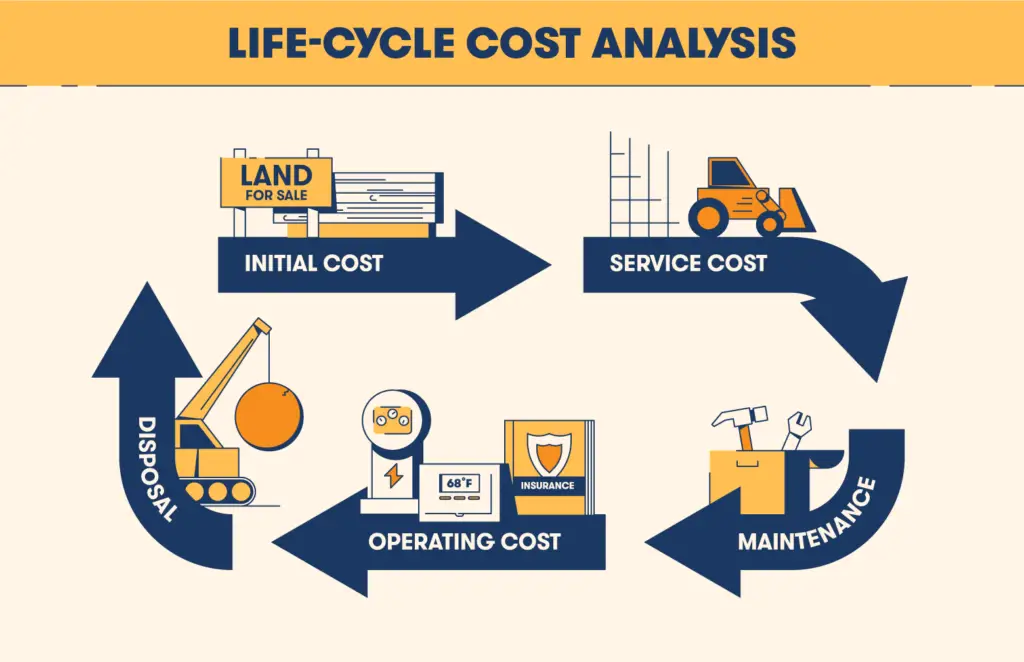Achieving a competitive edge in today’s market requires a strategic approach to cost analysis. In order to fully embrace Value Methodology (VM), it is important to understand how cost analysis fits into the bigger picture. It’s not just about cutting costs or managing expenses; it’s about spending smarter. This means taking a closer look at every cost element, no matter how small, and evaluating how it aligns with and supports the organization’s long-term vision and objectives.
By shifting the focus from generic cost reduction to strategic value enhancement, organizations can unlock the full potential of VM. In doing so, they can improve efficiency, enhance value, and ultimately gain a competitive edge in their respective markets. This article explores the nuanced and strategic aspects of cost analysis and showcases how a deeper understanding of this discipline can help organizations achieve their strategic goals.

Fundamentals of Strategic Cost Analysis
This approach goes beyond conventional cost-cutting. It is an intricate process of evaluating how each cost element contributes to the overall strategic objectives. It’s about balancing cost reduction with value creation, ensuring that every expenditure directly aligns with and supports the organization’s goals.
Integrating Cost Analysis with Strategic Planning
Strategic cost analysis should be seamlessly integrated into the organization’s strategic planning process. This integration ensures that cost considerations are part of the decision-making process from the outset, aligning expenditures with strategic goals.
In-depth Opportunity Identification
The technique involves a meticulous examination of current spending to unearth areas where costs can be optimized. This detailed analysis uncovers opportunities for reallocating resources to more productive and value-generative areas.
Comprehensive Assessment of Cost-Value Dynamics
It requires a thorough understanding of how each cost impacts value creation. This dynamic assessment helps in discerning which costs are essential for value delivery and which are superfluous.
Prioritization Based on Value Impact
Strategic cost analysis focuses on prioritizing cost reductions based on their potential impact on overall value. It’s about making intelligent choices that enhance efficiency without compromising essential functions or quality.
Data-Driven Decision-Making
Employing data analytics in strategic cost analysis enables more accurate and informed decision-making. By using data to understand cost patterns and trends, organizations can make evidence-based decisions that align with their strategic goals.
Like Us on Facebook!
Enhancing Operational Efficiency
This method is also about improving operational efficiency. It involves reevaluating and streamlining processes to eliminate waste and reduce costs, thereby increasing efficiency without diminishing the value offered to customers.
Subscribe Us on YouTube!
Sustainability and Continuous Improvement
Strategic cost analysis is a continuous process, not a one-off exercise. Regular reviews of cost structures and their alignment with strategic objectives are essential for adapting to changing market conditions and maintaining long-term sustainability.
Stakeholder Communication and Engagement
Effective communication of how costs are managed and aligned with value is crucial. This transparency helps in building trust and gaining support from stakeholders, including investors, employees, and customers.
Market Positioning and Competitive Edge
In the long term, organizations that excel in strategic cost analysis can gain a significant competitive edge. By offering superior value at optimized costs, they position themselves favorably in the market.
Risk Management through Cost Analysis
A strategic approach to cost analysis also involves assessing the risks associated with various cost structures. This risk assessment is key to ensuring that cost optimization does not inadvertently increase the organization’s risk profile.
Customization to Organizational Context
The application of strategic cost analysis must be tailored to the specific context of each organization. Customization ensures that the analysis is relevant, practical, and aligned with the unique strategic goals of the organization.
Effective cost analysis in Value Methodology is a complex and comprehensive process that is essential for aligning organizational expenses with strategic objectives and generating substantial value. This approach goes beyond traditional cost-cutting measures and aims to gain a deeper understanding of how each cost component impacts overall value creation and strategic goals.
By integrating strategic cost analysis into the core of organizational processes, companies can make informed data-driven decisions, optimize resources effectively, and maintain or even enhance the quality and functionality of outputs. T
his approach can significantly improve operational efficiency, enable adaptability to changing market dynamics, and ensure long-term sustainability.
Moreover, this method fosters transparent and effective stakeholder communication, building trust and support for strategic initiatives. By tailoring this approach to the unique context of each organization, it can further enhance its relevance and efficacy.
Ultimately, strategic cost analysis within Value Methodology is a crucial and dynamic strategy that can propel organizations towards optimal value creation, a strong competitive advantage, and sustainable success in an increasingly complex and competitive business environment.
Author Profile
Abdulrahman Alnassar is multitalented professional and author. With over 10 years of experience in construction engineering & management, economics, investing, life coaching, and leadership. Abdulrahman expertise in managing complex construction projects is matched by his acumen in economics and investment strategies. As a life coach and leadership mentor, he combines practical wisdom with an empathetic approach, guiding individuals towards achieving their personal and professional goals. His writings offer insightful perspectives, blending industry knowledge with a passion for personal growth.


















